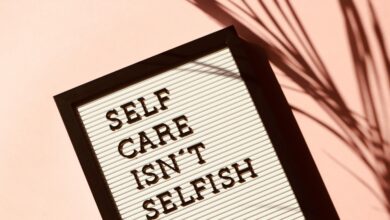How to Find Affordable Mental Health Services

Mental health is just as important as physical health, yet accessing affordable mental health care can be challenging for many people. High costs, limited insurance coverage, and stigma often prevent individuals from seeking the help they need. However, there are numerous resources and strategies available to make mental health services more accessible and affordable.
In this article, we’ll explore practical steps to find affordable mental health services, including community programs, online therapy options, sliding-scale fees, and more. Whether you’re uninsured, underinsured, or simply looking to reduce expenses, these tips will help you prioritize your mental well-being without breaking the bank.
Why Affordable Mental Health Care Matters
Untreated mental health issues can lead to worsening symptoms, decreased quality of life, and even physical health problems. Unfortunately, cost remains a significant barrier for many seeking therapy, counseling, or psychiatric care. The good news is that affordable options exist—you just need to know where to look.
1. Check Your Insurance Coverage
If you have health insurance, start by reviewing your policy to understand what mental health services are covered. Under laws like the Affordable Care Act (ACA) in the U.S., most insurance plans must provide coverage for mental health care, including:
- Therapy sessions (individual, group, or family counseling)
- Psychiatric evaluations
- Medication management
Steps to Take:
- Contact Your Insurer: Ask about copays, deductibles, and any limitations on the number of visits.
- Find In-Network Providers: Use your insurer’s provider directory to locate therapists, counselors, or psychiatrists who accept your plan.
- Appeal Denials: If a claim is denied, file an appeal with your insurance company.
Pro Tip: Some Employee Assistance Programs (EAPs) offered through workplaces provide free or low-cost mental health support.
2. Explore Community Mental Health Centers
Community mental health centers are nonprofit organizations that offer affordable counseling and psychiatric services based on income. These centers often employ licensed professionals and provide a wide range of treatments, including:
- Individual and group therapy
- Crisis intervention
- Substance abuse treatment
- Support groups
How to Access Them:
- Search for local community mental health centers using directories like SAMHSA’s Behavioral Health Treatment Services Locator (in the U.S.) or similar resources in your country.
- Call ahead to inquire about fees, which are typically determined on a sliding scale.
Pro Tip: Many community centers also offer specialized programs for veterans, LGBTQ+ individuals, and other underserved populations.
3. Look for Sliding-Scale Clinics
Sliding-scale clinics adjust their fees based on your income and ability to pay. This makes professional mental health care accessible to those who might otherwise struggle to afford it.
Where to Find Them:
- Private practices: Some therapists operate independently and offer sliding-scale rates.
- Nonprofit organizations: Groups like Open Path Collective connect clients with affordable therapists nationwide.
- University training clinics: Graduate students supervised by licensed professionals often provide low-cost therapy.
Pro Tip: Be honest about your financial situation when discussing sliding-scale fees—most providers genuinely want to help.
4. Utilize Online Therapy Platforms
Online therapy has revolutionized access to mental health care, offering convenience and affordability. Many platforms charge significantly less than traditional in-person therapy.
Popular Options:
- BetterHelp and Talkspace: Subscription-based services starting at around $60–$90 per week.
- 7 Cups: Offers free peer support and affordable licensed therapy.
- Crisis Text Line: Free text-based support for immediate assistance during emergencies.
Advantages of Online Therapy:
- Lower cost compared to in-office visits
- Flexibility to schedule sessions at your convenience
- Access to therapists across different regions
Pro Tip: Look for discounts or promotions when signing up for online therapy platforms.
5. Seek Out Support Groups
Support groups provide a safe space to share experiences and receive encouragement from others facing similar challenges. They are often free or low-cost and can complement individual therapy.
Types of Support Groups:
- In-Person Groups: Hosted by hospitals, churches, or community centers.
- Online Forums: Websites like Reddit (e.g., r/mentalhealth) or Facebook groups.
- Specialized Organizations: Examples include Alcoholics Anonymous (AA), Narcotics Anonymous (NA), and NAMI (National Alliance on Mental Illness).
Pro Tip: Many organizations, such as NAMI, offer free educational workshops and peer-led support groups.
6. Leverage Student Health Services
If you’re a student, take advantage of the mental health resources provided by your school. Most colleges and universities offer free or low-cost counseling services to enrolled students.
What’s Available:
- Individual and group therapy
- Crisis hotlines
- Workshops on stress management and coping skills
Pro Tip: Even alumni may qualify for reduced-rate services at some institutions.
7. Consider Faith-Based Counseling
Many religious organizations provide free or low-cost counseling services rooted in spiritual principles. These programs are open to anyone, regardless of faith background.
Examples:
- Catholic Charities
- Jewish Family Services
- Local mosques, temples, or churches
Pro Tip: Verify the credentials of counselors to ensure they meet professional standards.
8. Use Government-Funded Programs
Government initiatives can help bridge gaps in mental health care access. Depending on your location, you may qualify for free or subsidized services.
Options Include:
- Medicaid/Medicare (U.S.): Provides comprehensive mental health benefits for eligible individuals.
- Public Health Clinics: Offer free or low-cost screenings, therapy, and medication.
- Veterans Affairs (VA): Veterans can access mental health care through VA facilities.
Pro Tip: Research eligibility requirements for government programs in your area.
9. Take Advantage of Crisis Resources
If you’re experiencing a mental health crisis and cannot afford immediate care, several free resources are available 24/7.
Emergency Hotlines:
- National Suicide Prevention Lifeline (U.S.): Call or text 988.
- Crisis Text Line: Text HOME to 741741.
- International Resources: Visit Befrienders Worldwide for global helpline listings.
Pro Tip: Save these numbers in your phone for quick access during emergencies.
10. Practice Self-Help Strategies
While professional help is invaluable, self-help techniques can supplement therapy and reduce reliance on costly interventions.
Effective Techniques:
- Mindfulness and Meditation: Apps like Calm, Headspace, or Insight Timer offer guided meditations.
- Exercise: Physical activity boosts mood and reduces anxiety.
- Journaling: Writing down thoughts helps process emotions and identify triggers.
- Healthy Lifestyle Choices: Prioritize sleep, nutrition, and social connections.




